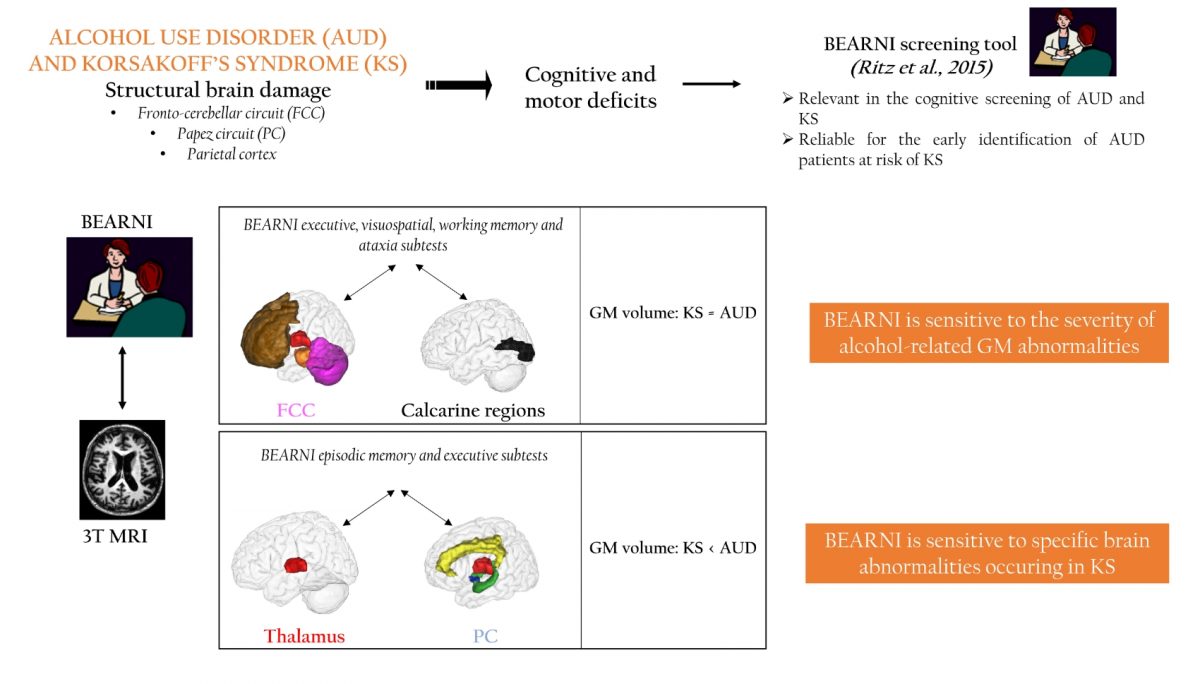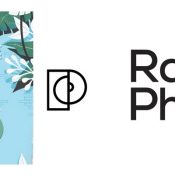Ludivine Ritz (MC, LPCN), Hélène Beaunieux (PR, LPCN) et leurs collaborateurs, ont publié un nouvel article.
Ritz, L., Segobin, S., Laniepce, A., Lannuzel, C., Boudehent, C., Vabret, F., … & Beaunieux, H. (2022). Structural brain substrates of the deficits observed on the BEARNI test in alcohol use disorder and Korsakoff’s syndrome. Journal of Neuroscience Research. doi:10.1002/jnr.25132
Celui-ci a été accepté par la revue Journal of Neuroscience Research (SCIMAGO-SCOPUS Q2, SJR 2021 1.11, IF 4.433, H-index 166).
Il est accessible en ligne à partir de ce lien.
Abstract:
Chronic and excessive alcohol consumption can result in alcohol use disorder (AUD) without neurological complications and in Korsakoff’s syndrome (KS) when combined with thiamine deficiency. These two clinical forms are accompanied by widespread structural brain damage in both the fronto-cerebellar (FCC) and Papez circuits (PC) as well as in the parietal cortex, resulting in cognitive and motor deficits. BEARNI is a screening tool especially designed to detect neuropsychological impairments in AUD. However, the sensitivity of this tool to the structural brain damage of AUD and KS patients remains unknown. Eighteen KS patients, 47 AUD patients and 27 healthy controls (HC) underwent the BEARNI test and a 3 T-MRI examination. Multiple regression analyses conducted between GM density and performance on each BEARNI subtest revealed correlations with regions included in the FCC, PC, thalamus and posterior cortex (precuneus and calcarine regions). All these brain regions were altered in KS compared to HC, in agreement with the cognitive deficits observed in the corresponding BEARNI subtests. The comparison between KS and AUD regarding the GM density in the several nodes of the FCC and calcarine regions revealed that they were atrophied to the same extent, suggesting that BEARNI is sensitive to the severity of alcohol-related GM abnormalities. Within the PC, the density of the cingulate cortex and thalamus, which correlated with the memory and fluency subscores, was smaller in KS than in AUD, suggesting that BEARNI is sensitive to specific brain abnormalities occurring in KS.
Graphical Abstract :


Ludivine Ritz est enseignante-chercheuse au LPCN, ses recherches portent sur la neuropsychologie, les addictions, les fonctions exécutives et les neurosciences cognitives.






